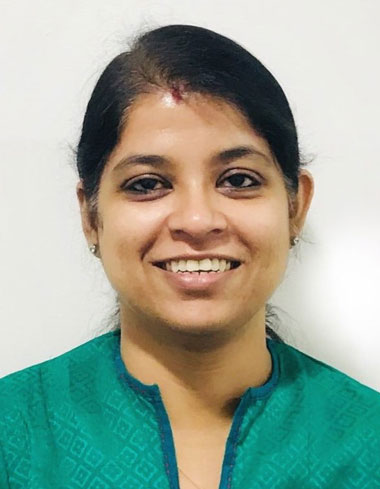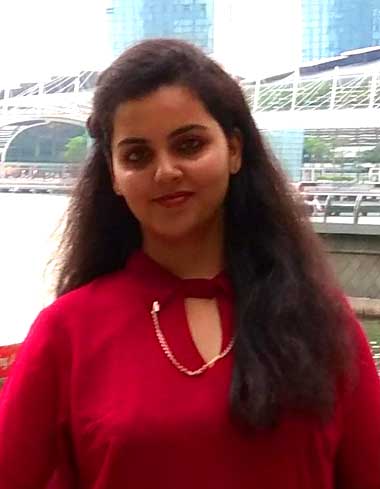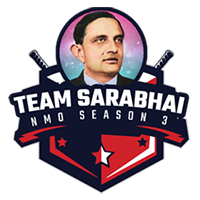
FINAL | BUSINESS CASE - BCS 09
Submission BCS 09
NMO Season 3
Eco-Gold
Submission Date & Time : 2021-04-03 11:04:23
Submitted By : Omkar Dashetwar - From Team Sarabhai
Waste Management Overview
The growing urban population of India has led to an increase in the urbanization of the country. The high economic growth, higher standards of living, and increasing opportunities in cities have led to almost 10 Million people migrating to cities and towns every year, which has further added pressure on these cities in terms of infrastructure and housing and thereby on Waste Management as well.
Indian municipal solid waste management services market is an INR 500bn industry which is expected to grow at a CAGR of 14.4% till FY 2025 driven by an increase in urban population, changing consumption patterns, improved awareness of modern methods of waste management, increased participation by private players and investments by ULBs towards scientific disposal of such waste.
In India, municipal solid waste is managed in two ways: Centralized and Decentralized Waste Management approach. The centralized approach is also termed as Integrated Solid Waste Management and is a technology-driven system for handling bulk wastes at a central processing facility. At the processing facility, value is derived out of waste in the form of compost, incineration, Refuse Derived Fuel (RDF), plasma gasification, and biomethanation.
In the decentralized method, waste is managed by various small waste management centers within the locality. These centers are run by either profit-making or not-for-profit organizations engaged in collecting, transporting and processing around 2 to 20 metric tons of waste from the surrounding localities. These small centers are mainly engaged in making compost out of the organic content in the waste besides selling recyclables such as plastic and glass to local traders and scrap dealers. This approach is not suitable for large and densely populated cities as such facilities generally occupy space within each locality/residential colony which may be opposed by people residing in that vicinity.
Currently, as per Frost & Sullivan’s analysis, around 85-90% of the municipal solid waste generated in India is being collected and transported out of which approximately 30-35% gets processed.
MSW in India generally consists of compostable/biodegradable, recyclables and inerts. Compostable/ biodegradable/ organic items are food waste, from households, retail/wholesale markets, and institutions such as hotels and restaurants, which account for around 48% of the overall waste composition. Recyclables include paper, plastics, metal and glass and account for 19% of the total MSW composition while the balance 33% comprises inert waste.
Various sources of municipal solid waste
|
Source |
Typical waste Generator |
Solid Waste Content |
|
Residential |
Single and multiple households/ dwellings |
Food wastes, paper, cardboard, plastics, textiles, leather, yard wastes, wood, glass, metals, ashes, special wastes (e.g. bulky items, consumer electronics, batteries, oil, tires), and household hazardous wastes |
|
Commercial |
Shops, Stores, Hotels, Restaurants, Markets, Office, Malls etc. |
Paper, cardboard, plastics, wood, food wastes, glass, metals, special wastes, hazardous wastes |
|
Institutional |
Schools, Hostels, Hospitals, Government and Private Office Complexes |
Paper, cardboard, plastics, wood, food wastes, glass, metals, special wastes, hazardous wastes. |
|
Construction and demolition waste |
Construction sites, road repairs, renovation sites, demolition of buildings |
Wood, Steel, Concrete Debris, Glass, Sand, Tiles, Bituminous Concrete etc. |
|
Other waste |
Street Sweeping, landscaping, Cleaning of parks, beaches, other recreational areas |
Street sweepings; drain silt; landscape and tree trimmings; wastes from parks, beaches, and other recreational areas |
India Waste Management Services Market
The Indian Waste Management Services market is in its growth stage and is gaining global attention. Due to the high cost involved in having sustainable solid waste management, the Government along with Urban Local Bodies (ULBs) are increasingly participating with the private sector through public-private partnerships to find sustainable solutions for the
Waste Management Industry. In order to tackle the mounting problem of solid waste, the Ministry of Environment and Forests (MoEF) legislated Waste Management and Handling Rules promoting the involvement of private agencies in waste collection, treatment and disposal. The emergence of the waste management market can be directly attributed to the following:
• Growing urbanization with the influx of rural population to towns
• High standard of living demanding quality services and living spaces
• Mounting pressure on local government bodies with stringent environmental regulations
• Increasing levels of awareness in the society on the ill effects of improper disposal of Solid Waste
Rapid urbanization continued the concentration of urban population in large cities creating urban agglomerates, and the variation in the spatial distribution of population have placed a tremendous burden on the already-overstrained urban civic infrastructure. Thus, state agencies and Municipal Corporations have to work in unison to create new capacities and resources to deliver equitable, sustainable growth and reduce spatial variations. On the whole, the generation of municipal solid waste, biomedical waste, hazardous waste, and electronic waste has increased as a natural consequence of population growth and urbanization.
Company Plan and details
Company Name - Eco-Gold Ltd
Company Tagline - “ Waste isn’t waste until we waste it.”
Vision - Eco–Gold Ltd. shall become a leading enterprise with world-class infrastructure development and environmental management. Our vision is to be the world's most dynamic company in creating sustainable solutions that are essential to a better, safer, healthier life for people everywhere. We have a focus on woman empowerment and the inclusion of informal groups.
Mission - To provide society and our client solutions and tools designed to implement environmental commitments in a safe, efficient, and responsible manner.
Business Model - We will be proposing to collect money from Municipal Bodies for collecting, handling, transporting, and disposing of waste. Essentially, this is a proposal to Municipal Body to outsource the collection and disposal of waste to Eco-Gold Ltd(our company).
We will take contracts for the primary and secondary collection of waste from corporations. To achieve this objective, we will acquire a fleet of zero-emission electric primary collection vehicles, compactors and build up specialized infrastructure which will be operated in 3 shifts on a 24 hours basis. We will aim to offer the vision of the government of 100% segregation at households also (primary collection). Further, in the secondary collection, we will have a fleet that is GPS and IoT enabled, and the entire waste management collection system will run on RFID-based real-time monitoring and control systems. We will also focus on the direct employment of thousands of people to achieve an effective and integral waste management system starting from door-to-door collection of segregated waste to disposal of waste with waste to energy plants for powering the metros. As per the vision statement, we will empower women and informal groups like (kabadiwala, sweepers, garbage collectors etc. who are part of the flow chain) in the Door To Door Collection as well. As a initiative, we will be calling all these workers as ‘Cleaning Angels’. We will also develop an integrated software which will be launched as an app and tie-up with our end customers for recyclable waste (like for virgin materials, compost, etc.), and going further this will help us to monitor the door-to-door data collection, monitoring and forecasting as well. We will launch the reward system in form of points which can be redeemed from our app with purchase offers of the products (who are tied up with us – kind of Paytm Bazar) – this will also include the motivation for the residents for 100% segregation at the primary source which matches with govt. mission and vision. In order to increase our chance of acceptance among other competitors in this proposal, we will additionally make the process of monitoring the entire flow chain available in the form of a dashboard on govt. websites – and make it available to govt. for their review and monitoring purpose – as govt. has pre-defined rules for monitoring the 100% Door to Door Collection, handling, transport, and disposal of Municipality Waste. This step will make our process integrated as mentioned in the problem statement. Further, we will make our bins digitally monitored & weighed( powered by solar panels) – so that they can give us the data for weight wise (filled / half-empty / half-filled) – this will ensure that we are in line with the government initiative of Swaccha Bharat Mission and there is no spill over of garbage in the collection area. All of these initiatives would foolproof the waste management system and also help us to create awareness of waste as wealth all through the flow chain starting from door to door collection to W2E, or recycled sustainable raw material availability.
Bhopal Details
Population - 24 Lakhs approx
Population density (6290 people per sqm): Essentially hilly area so urban places highly populated
Waste generation per person = 0.45Kg (avg.)/ day (online statistics)
Total waste generation forecasted this year = 1080 tonnes / day
As per our previous research (by Sarabhai team online) current waste generation we will take for calculation
Target for Eco – Gold Ltd. (as per company mission and vision statement for 100% acquiring target)
Ideal Target for acquiring waste: 886 tons per day (on real survey numbers @ 2021)
Operations Flow
This will be a 4 step process:
1. Collection (Door to Door)
2. Transportation of collected waste
3. Segregation, separation of Waste
4. Disposal, Recycle, Processing of Waste
Step-1: Collection door to door
Segregation and proper waste is a major problem. If the waste is properly segregated, this helps in increasing the value of the waste because many things can be extracted for the segregated waste, processing becomes easy and we can maximize the profits and value from the waste. This segregation is a major challenge. In line with this, Govt of India is soon proposing a 3 color coding for segregation waste across many metros and cities (Currently, many cities follow compulsory waste disposal in 2 bin; dry waste bin and wet waste bin). We will propose to implement the same in Bhopal as well. According to the coding, there will be 3 categories; Green, Blue, Red.
1. Green bin for wet waste
2. Blue bin for dry waste
3. Red bin for hazardous waste
There will be digitized smart bins as well wherever possible, like corporates or big societies and affluent areas (primarily at Higher Income Group areas and places). This will help to keep a track of the quality of segregated waste which will further be used to incentivize people in the form of coupons and points(redeemable). A smart IoT and IT infrastructure along with App will be used to monitor the same. Also, the cleaning angels (workers and garbage collectors) will keep a track of segregation and ensure it wherever possible.
Additionally, to increase our revenue and profits, we will be targeting the ‘kabadi’ segment. Here, people generally dispose of their waste like newspapers, bottles, cardboards, books etc at a cost of about 8 to 10 rs per kg. The best part about this is that there will be minimal efforts on segregation for this waste and the monetary value is very high and can fetch good business.
Step-2: Transportation
Here, our differentiation point would be the fleet of electric and digitized vehicles:
Electric vehicle for primary collection - This vehicle will be used to acquire the primary waste from households and systematically loaded in upgraded digital dump bins near the proposed: Upgraded modernized waste sorting centers. This vehicle is capable to carry 500Kgs of waste.
Electric Sweeping machine - Many plastic and other wastes are there on the road. These machines would be collecting the waste and at the same time clean the road as well. This will help Bhopal become a forerunner in Swatch Bharath Misison’s competition and assessment among cities and Municipal Bodies.
Garbage Compactors - This is where the secondary collection will take place. The compacted garbage will be transported via this vehicle to our centers/plants for processing.
This is capable to transport 25 Tonnes of waste.
Step-3: Segregation/Separation of waste
Here, a high-tech machine with good efficiency would be used to sort and segregate waste. Currently, due to inefficient waste segregation process, much of the potential value of the waste is disposed off and not much could be extracted from it. This advanced segregation process will help us increase the value from the waste and thereby increasing revenue.
Step-4: Disposal, Recycle, Processing of Waste
This is the stage at which waste will be turned into gold. All the recyclable waste after segregation will be recycled and sold to the appropriate corporate buyer (Plastic, Glass, Paper, Metals, Electronics etc). The wet waste will be processed in a Waste to Energy plant which will be developed with the financial help of the government (as mentioned according to the case statement). Additionally, the remaining waste will be composted and can be used for agricultural purposes and other organic uses.
So in a nutshell, organic waste will be composted and biomethenated, intert materials would be land filled, and recyclable materials will be processed for recycle and sold.
We will have 2 sorting centers in Bhopal and a Waste2Energy Plant in Bhopal to cater to the needs. This W2E plant is capable to handle needs of 10 municipal bodies around Bhopal (talukas and districts). This will help us in expansion later.
Strategy and implementation -
We will be initiating our operations in 4 phases, as the plan cannot be implemented quickly in few days.
So these phases will be over 5 years -
Phase1:(1.5 years) During phase 1 of implementation marketing team would be running awareness campaigns encouraging people to realise the reward points and the conceptualisation of “wealth to waste”. We start with a door-to-door garbage collection team of 500-woman fleet who help us in achieving the initial stepwise marketing campaign. Bhopal has a high population density of 6290 people per sqm. Hence during phase 1 we divide the team for carrying out the following stepwise as mentioned:
Firstly, we survey to understand existing Door to Door solid waste management system
Next, based on the collected data we divide the city zone wise and GroupWise as explained before.
We implement our fleet (like a pilot project) to understand the response & success. Our team approach the societies & door to door with simple one-page flyer explaining the segregation methodology and reward points related to it.
We approach societies of (MIG, HIG) for the implementation of 3-way segregation proposal. We link up B2Bs who are dealing with biodegradable garbage bags / colour-coded bags / colour coded bins – include them in advertisements, promotions on social media and apps.
With the eventual results of regular promotions and awareness campaigns we map the results through the data analysis captured through our integrated app.
The timeline for completion of phase 1 is expected to be within 1 and a half year, taking into consideration the number of households in question and population density of Bhopal that we need to cater to.
Second Phase(1.5 years’ timeline): During this phase with the success stories and pattern of segregations that is captured and analysed we are ready for implementation with additional team members for taking this effort into further action for strategy to handle the slums, hospitals and establishments etc. With the continued success of better waste collection with our “Cleaning Angles” in this phase we map in the inclusion of informal groups in our door-to-door collection like the street sweepers and rag pickers – who may face challenge to collect the garbage with our continuous and strategic approach for door-to-door collection. This phase will also essentially take about a year and a half to mature and give the projected results for segregation and collection of waste.
Third and Fourth Phase (Last two years of plan, 1 year each): These are the final stages of the project when we expect the collection and segregation to reach 75% to 100% target. With the brand awareness of Eco- Gold already in place and services been tried and tested – this phase is important to tap in the other collection points that has been left out like marriage halls, ceremonies and we can offer the garbage collection for a certain fee. Our dedicated team can guide these kind of seasonal event managers and since this is chargeable – we can have the collection done by our “Cleaning Angels” in a systematic manner.
CSR - Under this activity, we will propose the government to build a park from waste materials, inspired from Chandigarh’s rock garden. This will help generate government revenue as well and promote awareness among the people.
Social Initiatives - Under this, we will implement a ‘Cleaning Angels’ campaign to create awareness among people and not look down upon our workers who collect garbage/kabadiwallas, clean roads etc. This will also help build our brand name.
Marketing- A priority today is to move from complete reliance on segregation at secondary collection points or sorting centres towards an additional focus on developing a change in mindset and target for 100% waste segregation and collection at primary source as well – the households.
Conceptual paradigm shift of ‘waste’ as ‘wealth’: This conceptual paradigm shift of building an image in mind of common people to consider ‘waste’ as ‘wealth’ is the key idea behind our marketing proposal.
Here we would like to bring to notice a unique approach called “hierarchy of effects” which is often used in marketing of products. HoE is a simple and straightforward easy to understand template in marketing. It’s a six-step process that is very often implemented to create awareness among people in general.
Awareness -> Knowledge -> Liking -> Preference -> Conviction -> Purchase
Additionally, the Marketing team will help build a brand image of our company, which will later help us get more contracts of other municipalities and expand our footprint.
The marketing team will help promote the ‘Cleaning Angels’ initiative.
IT, Analytics and Technicals -
This department will play an important part in differentiating our process and operations and making it more efficient from the rest. There will be an app, that monitors the waste quality and help the people get reward points from the same.
Human Resources -
Our company’s manpower will have unskilled, semi-skilled, Skilled and Highly Skilled spread across multiple functions including Public Relations, Human Resources, Accounts, Planning division, Waste collection, Waste Sorting, Landfill Management and others (Security Officers, Cleaners, Mechanic / Handyman, Office Attendant)
Comments
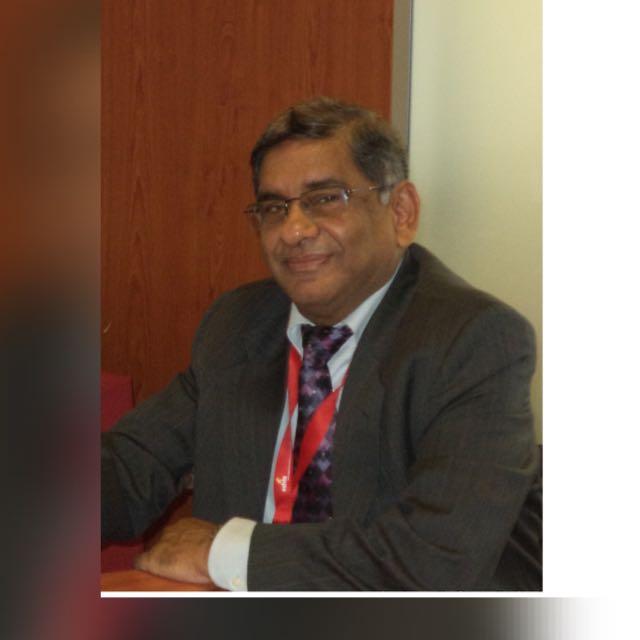
Dr Saroj Kumar Dutta
Omkar has proved himself as a calm Leader, and a Team Player, His Final Solution has a clear strategy and a Simply explained execution plan. A bit More Explanation in the presentation could have made this Solution much better. Nevertheless good Solution. Well Done Omkar. All the best for your future endeavors.

Rajni Khosala
Leadership is about taking the team along and leading from the front, your contribution shows that you are leading from the Front, solution efforts are good and in the right direction. All The best Omkar.
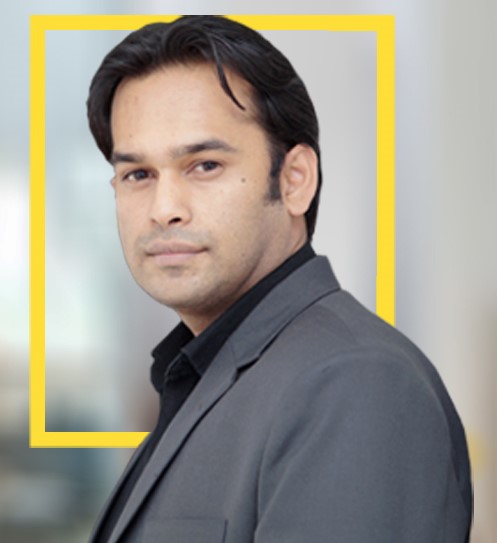
Umeash Sahhaaii
Good Solution Omkar, Presentation could have been better for a Leadership Profile. apart from this Efforts are good. Best Wishes
Participant
Omkar Dashetwar
IIM, Shillong
I am a first-year MBA student at IIM Shillong with 21 months of work experience at TATA Motors in R&D.
Team Edison BCS 09 Submission
Total Team Points: 132500
Team Sarabhai BCS 09 Submission
Total Team Points: 135450






